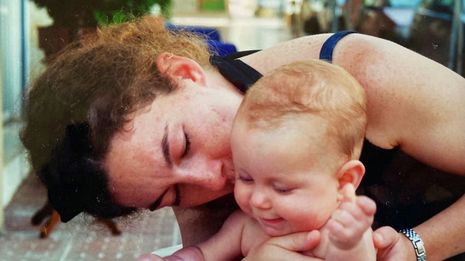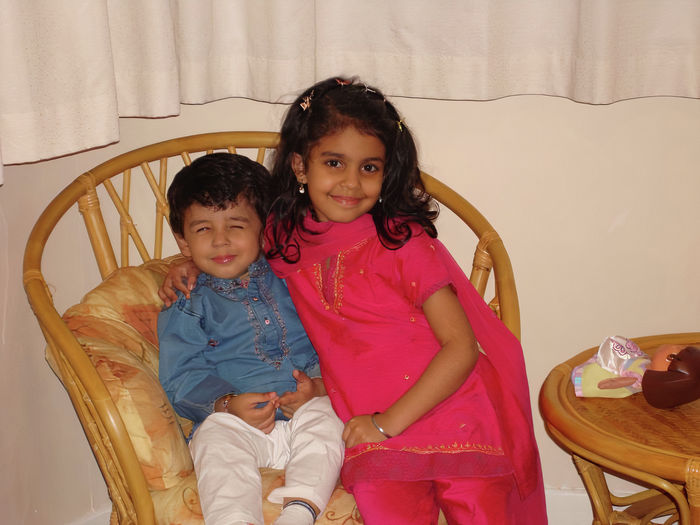My mum, my everything
Drawing on her relationship with her mother, Alessandra Rey considers the stigma around the ‘nuclear family’

Throughout primary school I was inundated with questions from peers in the classroom, interrogating my father’s absence in my life. I would report back to my mum after the school day, aching with the feeling that I felt strange compared to other children, that my situation was incomprehensibly unique.
My school experience was tainted with the narrative that my family situation was an aberration to people. I was greeted with sympathy partnered with an awkwardness, leading to me feeling guilty as if I had marred a conversation. Constantly, my mum would attempt to comfort me and reassure me that my situation was thoroughly normal. Retroactively, I am still so bewildered that my utterly loving and wonderful relationship with my mother, having it be just mother and daughter, was ever examined and appraised as inadequate, deficient or that I was “missing something”.
“I felt so lost, dejected and despondent but my mum was my compass”
My mum, without an ounce of hyperbole, has supported me through absolutely everything — acting as a best friend, a father, a sister, an inspiration and teacher all in one. My mum is my family and I am so exceedingly lucky to have such an incredible mother who I love beyond anything. She is truly a beacon of kindness and empathy. More so, my guidepost and lantern of unconditional love.
Despite experiencing her own difficult hardships, and having to juggle the demands of raising me amidst less-than-ideal circumstances, she never compromised in her care and warmth. For many years, I felt so lost, dejected and despondent but my mum was my compass: emboldening me and loving me to get through the days when I was really struggling. I still always turn to my mum when desiring a listening ear, advice, support or even a laugh! The gratitude I feel is inarticulable. I know many who have the prototypical “nuclear family” on paper but do not necessarily have that bond with one of their parents or siblings.
“[My father’s] disappearance benefitted me”
Sparing unnecessary detail, my relationship with my father was terminated when I was around 7 years old. My parents were never together growing up and I saw my father intermittently, but the difficulty of registering his sudden absolute absence was not his literal absence, but rather, what surrounded it. In fact, his disappearance benefitted me (but was certainly not kindness on his part). He wasn’t a good person, nor was he a benevolent presence in the years which I knew him. His treatment of me was that of hatred and that I was an irritating burden, which I would be scolded or reprimanded for.
Obviously, this is not how a child should feel. I then had to process his abrupt removal of himself from my life with those previous feelings. Neither of which I could actually understand when I was younger. I then would brace myself for interrogation at school that my peers had “never seen” my dad or “did I even have a dad?”. However, it was a good thing he wasn’t in the picture, and I am so fortunate and blessed to have such a phenomenal mum.
I can’t know if it is the same for children now, but I truly hope that the antiquated image of father, mother, and children in one domestic sphere is disappearing. If that is the family one has, then that is beautiful and wonderful, but with it being an enforced image of “ideal”, it can add a stigma to those that don’t have that. Unforeseen circumstances can happen to any child, for example, the loss of a parent or strained relationships. It also dismisses families with two mums or two dads, or one mum or one dad. I believe there is absolutely no necessity for “male” influence and “female” influence for a child to healthily grow up because gender-specific traits are societally constructed. If a child is already struggling, the projected image of what a family should look like may perpetuate or worsen that wound. Facing family difficulties might be easier if there wasn’t an unhealthy concern about what a “normal” situation looks like. Instead, it should be about finding one’s own settled and compassionate set-up.
I know and have met several people with situations not dissimilar to my own, who encountered the same incredulous expression and questioning of their absent father, or felt that their family was seen as not “quite right”. My family may not have seemed quite the image of ‘perfect’ when I was growing up but I feel so lucky to have my mum as my family. She is all I could ever want or need.
 News / Cambridge academics stand out in King’s 2026 Honours List2 January 2026
News / Cambridge academics stand out in King’s 2026 Honours List2 January 2026 Comment / Plastic pubs: the problem with Cambridge alehouses 5 January 2026
Comment / Plastic pubs: the problem with Cambridge alehouses 5 January 2026 News / Cambridge businesses concerned infrastructure delays will hurt growth5 January 2026
News / Cambridge businesses concerned infrastructure delays will hurt growth5 January 2026 News / AstraZeneca sues for £32 million over faulty construction at Cambridge Campus31 December 2025
News / AstraZeneca sues for £32 million over faulty construction at Cambridge Campus31 December 2025 Interviews / You don’t need to peak at Cambridge, says Robin Harding31 December 2025
Interviews / You don’t need to peak at Cambridge, says Robin Harding31 December 2025









